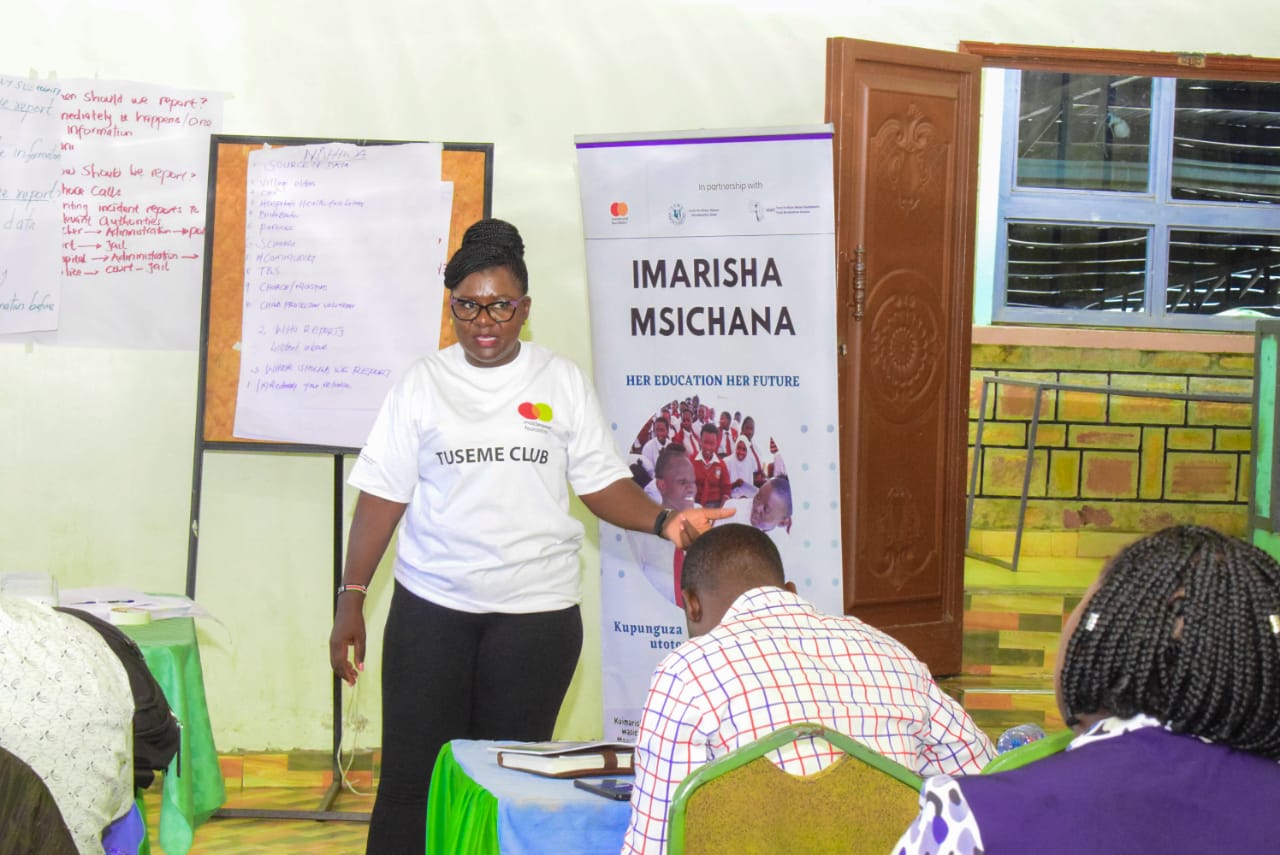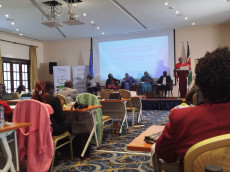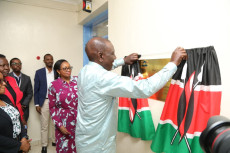- According to the Ministry of Education's National Guidelines for School Re-Entry in Early Learning and Basic Education for 2020, pregnant learners should be readmitted to the same class/form they were in before leaving school.
Homa Bay County is currently facing a triple threat that has had a profound impact on the lives of young girls in the region. Each year, there is a distressing number of school dropouts among girls due to various factors such as early pregnancies, sexual gender-based violence, and HIV infections.
Consequently, the educational performance and attendance of girls have been adversely affected, leading to many schools deregistering expectant girls under the assumption that they cannot accommodate "mothers."
According to the latest research conducted by the Kenya Demographic and Health Survey (KDHS) in 2022, Samburu County has the highest rate of teenage pregnancies at 30%, while Homa Bay County ranks sixth with a rate of 23%.
Nevertheless, over the past eight years, Homa Bay has made significant progress in reducing the number of teenage pregnancies from 33% to 23%.
In 2021, Homa Bay recorded the following statistics: 4.2% of pregnant women were between the ages of 10 and 14, 20.6% were between the ages of 15 and 19, and 24.8% of adolescents received their first antenatal care visit.
Read More
In 2022, the numbers improved: the percentage of adolescents aged 10 to 14 who were expecting reduced to 1.8%, while the rate of pregnant adolescents aged 15 to 19 decreased to 19.2%. Additionally, the proportion of teenagers receiving their first antenatal care dropped to 21%.
However, in 2023, Homa Bay County experienced a rise in teenage pregnancies. The figures stood at 2.4% for girls aged 10-14, 19.6% for girls aged 15-19, and 22% for girls aged 10-19 who were pregnant during their first antenatal care visit.
In Kenya, approximately 1.62 million people are living with HIV/AIDS, with Homa Bay County accounting for 138,932 cases, of which 33,343 are adolescents.
Furthermore, Kenya has an overall HIV prevalence rate of 4.5%, while Homa Bay County's prevalence rate is 15.2%, nearly four times higher than the national average. Among those affected, 23.1% are girls, and 20.95% are boys between the ages of 10 and 24.
In 2023, Homa Bay County reported 7,618 cases of sexual gender-based violence among teenagers. The breakdown by sub-county is as follows: Rachuonyo South (3,021 cases), Rangwe (1,080 cases), Mbita (803 cases), Ndhiwa (715 cases), Homa Bay Town (696 cases), Suba Central (390 cases), Karachuonyo (345 cases), Suba South (320 cases), and Kabondo Kasipul (248 cases).
Given these alarming statistics, numerous stakeholders have united to defend girls' education rights. They are pooling resources to ensure that teenage mothers can return to school.
According to the Ministry of Education's National Guidelines for School Re-Entry in Early Learning and Basic Education for 2020, pregnant learners should be readmitted to the same class/form they were in before leaving school.
This applies even if a learner becomes pregnant multiple times, as long as they are still within the school's mandatory age.
The guidelines also state that learners who drop out due to HIV-related illnesses or psychological reasons should be readmitted at the beginning of the following calendar year in the same class/form.
The County Government of Homa Bay, in collaboration with the Forum for African Women Educationalists (FAWE), organized a stakeholders' meeting to address these challenges and develop strategies for identifying and reintegrating dropout teens into the education system.
Sarah Malit, the County Executive Committee Member for Gender, Youth, Sports, Culture, and Social Services in Homa Bay, emphasized the need for mitigation measures to combat teen pregnancies and facilitate the return of young mothers to school.
"As a county government, we fully support FAWE's efforts through their Imarisha Msichana program, which aims to educate teen mothers," said Malit. She further explained that they initially target 2,000 dropouts and have collaborated with local chiefs to identify 20 teen mothers who will be reintegrated into the school system.
The FAWE's Imarisha Msichana program, piloted in 20 counties, including Homa Bay, seeks to ensure that teenage mothers have access to education on par with other students.
In Homa Bay County, the program is being implemented in eight schools: Nduru Primary, Nyanguu Primary, Rangwe Girls', Ojode Pala Secondary, Rangenya Secondary, Kaswanga Girls, Wasamo Girls, and Nyabuni Integrated.
Among these schools, Wasamo Girls' Boarding School on Mfangano Island is a priority for FAWE due to its high rates of teen pregnancies and dropouts.
According to Florence Auma Ayoo, Principal of Wasamo Girls, the school has witnessed 14 dropouts, of whom only 11 returned, while three got married.
“Wasamo is the only girl school in this island where sex for fish is one of the ways food is put on the table and with this we have had 14 girls dropping out of school, upon follow up 11 came back while 3 dropped out completely for marriage,” Mrs Ayoo said.
The principal also noted that 30 girls out of the school's 120 girls are nursing, while 4 form one students are due.
“This year I admitted 4 girls in form one who are heavily pregnant, I also have two lactating form ones while the total number of girls with children is 30.” She lamented.
During a March visit by FAWE to Wasamo Girls, Eva Ojwang, the FAWE Regional Coordinator, said that they want to ensure that teenage mothers get the psychosocial support they need to develop.
“We are going to offer counselling services to the teen mothers. We also brought with us 4 tailoring machines and 2 trainees to help equip the mothers with tailoring skills that will keep them busy while not in school,” said Mrs Ojwang.
Life on the island has been tough; Ojwang’ said that this makes the young girls bait themselves as prey to males who entice them with money and material things and, in turn, take advantage of their innocence.
“With the sewing machines, the young mothers will be able to learn how to sew clothes that they can use for economic purposes. They will also learn how to make their own reusable sanitary towels,” she added.
During a stakeholders meeting in Homa Bay, Victor Odhiambo, a coordinator at FAWE, said that the NGO had launched the Tuseme Club and Mothers Club in the eight schools in Homa Bay County for the social development of teen mothers.
“We have launched Tuseme Club and Mothers Club in the 8 schools which we will use as platforms for psychosocial support and empower boys and girls to understand and overcome problems hindering academic and social development,” Mr Odhiambo said.
In the fight to eradicate teenage pregnancy and dropouts, the county governments, together with FAWE and other stakeholders, have laid down feasible measures that will promote learner retention, transition, and completion by formalizing the re-entry process.












